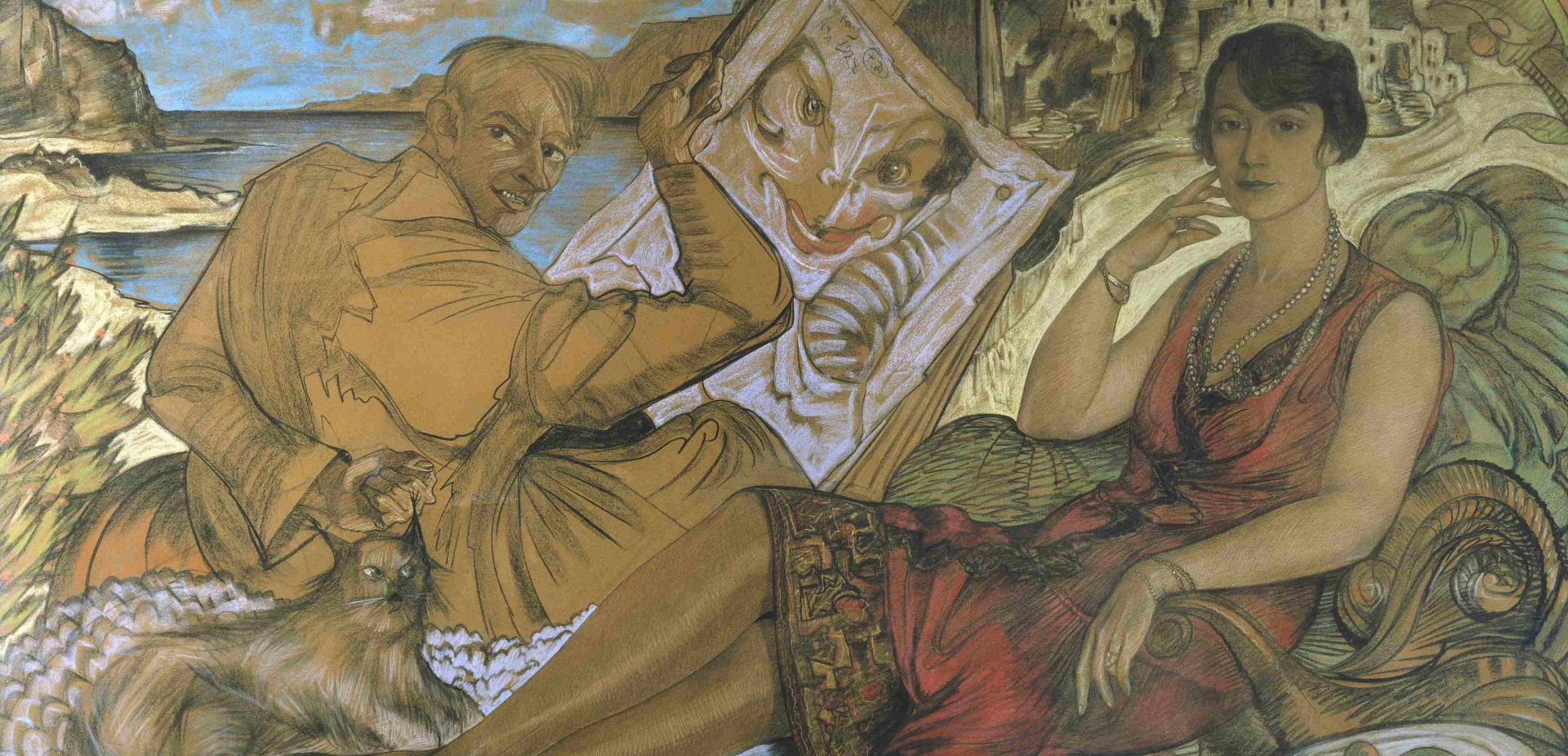Until a few years ago, the oeuvre of Stanisław Ignacy Witkiewicz was an intriguing testimony to the times in which this scandalist lived. The painter, writer and philosopher was an observer of the political and social changes that were shattering the old world. Witkacy's paintings, drawings, dramas, novels and dissertations expressed the feeling that humanity was heading for an abyss.
Today, Witkiewicz's artistic and intellectual legacy is becoming particularly relevant. The COVID-19 pandemic, the spectre of the outbreak of the third world war, the massive global energy and economic crisis - all this fosters catastrophic moods. And it is precisely through the prism of what is happening at the moment that it is worth looking at the works gathered at Warsaw's National Museum in the exhibition 'Witkacy. Seismograph of the Age of Acceleration'. This is the last chance to see the exhibition, as it is scheduled to close on 9 October 2022.
The title of the exhibition perfectly reflects the nature of the works on show. The distorted human silhouettes in the paintings and drawings are not only the effect of the author's drug-induced visions (resulting from his consumption of various hallucinogens, mainly peyote). In Witkiewicz's eyes, modernity was something demonic. He metaphorised it as a speeding locomotive. He saw in it a factor degrading human nature.
 SIGN UP TO OUR PAGE
SIGN UP TO OUR PAGE

Witkacy now appears as a provocateur for whom there were no taboos. He ostentatiously disregarded any conventions. He manifested this, for example, when posing for photographs, contorting his face. He annotated his drawings with absurd and grotesque comments, not shying away from vulgar erotic content. We can also see this at the National Museum.
This means only that Witkiewicz was an eccentric. And, as we all know, artists described as eccentrics are now considered heroes in mainstream cultural circles. They are perceived as rebels against all conservative structures which, as is commonly believed in these milieus, suppress individualism and freedom.

 SIGN UP TO OUR PAGE
SIGN UP TO OUR PAGE
 Witkacy now appears as a provocateur for whom there were no taboos. He ostentatiously disregarded any conventions. He manifested this, for example, when posing for photographs, contorting his face. He annotated his drawings with absurd and grotesque comments, not shying away from vulgar erotic content. We can also see this at the National Museum.
Witkacy now appears as a provocateur for whom there were no taboos. He ostentatiously disregarded any conventions. He manifested this, for example, when posing for photographs, contorting his face. He annotated his drawings with absurd and grotesque comments, not shying away from vulgar erotic content. We can also see this at the National Museum. 




